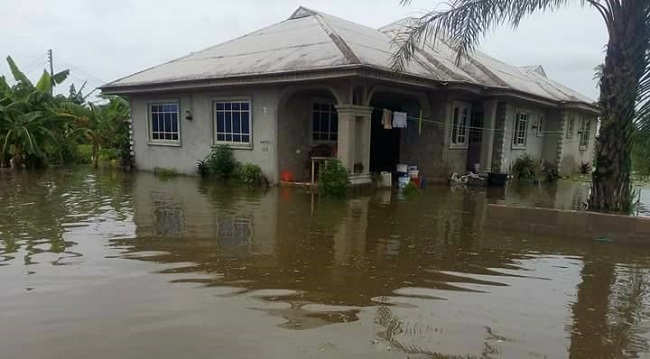Nigeria and other West African nations are set to adopt a new system of utilising satellite technology in better predicting environmental patterns to help mitigate flood.

The adoption follows an initiative by African Union (AU) leaders and the European Union in the training of key stakeholders in the application of the technology.
The training, which opened in Abuja and is also to hold simultaneously in other West African Countries, is being conducted by the Centre for Space Science and Technology Education (CSSTE), under the Global Monitoring for Environment and Security and Africa (GMES and Africa) initiative.
Giving insights on the training and adoption of satellite imaging, Dr Ganiyu Agbaje, Executive Director, CSSTE Consortium, said that the use of the new technology would make it easier to predict flood and locate the people who are really affected.
According to him, the training was not to teach participants how to predict but to show them how to use additional satellite data to do their prediction better and support other methods.
He said that the technology has been on for a while around the world, adding that African leaders in collaboration with the EU initiated the training to help Africa better monitor the environment and mitigate disasters.
Agbaje said that with the data, rainfall, rivers and the environment would be better monitored, adding that, in the case of Nigeria, more information on the activities of River Niger will be known using the technology.
“So if we monitor River Niger across West Africa and we know what is going on, then we will know what is coming to Nigeria.
“There are five countries involved in this, we are all monitoring and using the same method to see how we can monitor flood.
“If we are able to do this, we will be able to do our prediction effectively, our staff will be better equipped: we will know better how to do damage assessment and what point other stakeholders can come in.
“We will be able to map flood extents and also know where houses should not be built,” he said.
He commended the Global Monitoring for Environment and Security and Africa (GMES & Africa), a joint initiative of the AU and EU.
Speaking at the opening, Mr Clement Nze, Director- General, Nigeria Hydrological Services Agency (NIHSA), said that the training is aimed at building the capacity of stakeholders to better utilise satellite technology in providing accurate, timely and easily assessable information to improve the management of the environment
He said that the training is the second in the series of trainings lined up for stakeholders on environmental monitoring and forecasting.
Nze said that the training was aimed at enhancing stakeholders’ capacity in delivering their respective institutional mandate.
“This training programe will focus on building capacity on the acquisition and use of satellite data, including modelling, damage assessment, and forecast services.
“CSSTE Consortium has identified strategic training needs of its collaborating stakeholders on the multi-scale flood assessment and monitoring services for West Africa, hence the need to train stakeholders to sustain the benefits from the programmes’ products.
“This training therefore comes at the right time when we are experiencing flooding across the country, and I hope it will go a long way in complementing efforts on flood forecasts and early warning,” he said.
For the Director-General of the Nigerian Meteorological Agency NiMet, Prof. Sani Mashi, he noted that the training and the adoption of the technology was very timely given the rising incidences of flooding across the West African Sub-region.
“During the last decades, the trend in flood damages has been growing exponentially.
“Improved capacity to forecast, monitor and assess floods using Earth Observation Data is therefore an essential element in regional and national strategies to mitigate this annual event.
“I am confident that training of this nature will provide the useful skills and knowledge to all the trainees for planning to establish such forecasting system,” he said.
By Ifeanyi Nwoko
